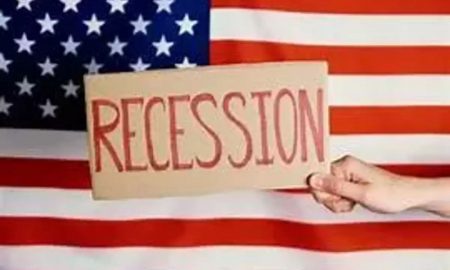
Retiring Soon? Here Are Seven Terms You Should Know

 Retirement is a period in life that requires a lot of planning. Retirement is not only about enjoying life after you have hung up your boots. It comes with many issues that need to address, and definitely, one of the most important ones is your savings.
Retirement is a period in life that requires a lot of planning. Retirement is not only about enjoying life after you have hung up your boots. It comes with many issues that need to address, and definitely, one of the most important ones is your savings.
While trying to save for your retired life, you will come across a host of retirement terms you will have no idea of. It’s pretty normal for you to find them unfamiliar since you are new to this phase. Below are seven of these terms you need to be familiar with before you retire.
401(k)
This particular retirement savings plan happens to be the most popular one. According to this plan, you should put forward a portion of your paychecks to the 401(k) plan. You should choose where you would be investing and not shell out taxes on your earnings or contribution until the time you initiate garnering the withdrawals. In 2021, the contribution limits to the 401(k) plan are $19,500 every year. For people who are 50 or above, the contribution limits stand at $26,000.
Matching Contributions
Matching contributions are an incentive that you get from your employer. This is an encouragement on their part so that you can accumulate ample savings for your retirement. When your employer contributes towards your 401(k), they deposit an amount that’s almost identical to your contribution each month.
The amount is up to a fixed percentage of the salary you receive. For instance, an employer will offer the same amount of your contribution to 3% of your take home. Therefore, if you rake in $50,000 at the end of each year, the employer would deposit more or less an amount of $1500 of your contributions towards your 401(k) plan. Just because a fixed formula is not there, you should talk with your company.
Mutual Funds
 Almost similar to exchange-traded funds or ETF, mutual funds gather money from the investors and utilize the amount to buy a wide range of stocks, short-term debt, or bonds. Since you are purchasing a range of securities and not making investments in one particular company, mutual funds are ideal for instant diversification.
Almost similar to exchange-traded funds or ETF, mutual funds gather money from the investors and utilize the amount to buy a wide range of stocks, short-term debt, or bonds. Since you are purchasing a range of securities and not making investments in one particular company, mutual funds are ideal for instant diversification.
With regards to mutual funds, the securities are selected and traded by a pool of experts. You might have heard about index funds. These are extremely popular mutual funds due to the low costs and amazing returns they offer. You can buy shares of mutual funds and index funds in an IRA or a 401(k)
Rollover IRA
You fund the rollover IRA with the money you have in your 401(k) or any other retirement account that your employer sponsors. This usually happens when you quit your job and don’t want to go with limited investment options or high plan fees. You might also move the funds from your 401(k) to an IRA if you want to cut down the number of retirement accounts you have in your name.
Roth 401(k)
Through Roth 401(k), you get special tax advantages. Quite in contrast with the conventional 401(k) accounts, where you donate contributions entirely on a pre-tax basis, you make contributions to Roth 401(k) with the sum you have shelled out taxes on. Since upfront tax deduction is not something you need to consider here, you don’t need to pay taxes on your withdrawals and earnings once you attain 59 and a half.
Self-Directed IRA
 SDIRA or a self-directed IRA happens to be a retirement plan to make investments quite extensively. Under selected IRAs, you can invest in Bitcoin, real estate, and even precious metals such as silver and gold. Self-directed IRAs can be Roth retirement accounts or conventional retirement accounts. However, more risks and more fees are associated with SDIRA in comparison to a normal IRA.
SDIRA or a self-directed IRA happens to be a retirement plan to make investments quite extensively. Under selected IRAs, you can invest in Bitcoin, real estate, and even precious metals such as silver and gold. Self-directed IRAs can be Roth retirement accounts or conventional retirement accounts. However, more risks and more fees are associated with SDIRA in comparison to a normal IRA.
Social Security
This is a pension plan that benefits those who have taken retirement and the members of their families. It substitutes a part of your wages based on your highest three and half decades of income and the time when you start getting benefit payments.
These were some basic retirement terms that you need to have a thorough knowledge of. Some important terms like Solo 401(k), require minimum distributions, individual retirement account, exchange-traded funds, etc. You will get an overall idea over the internet.
More in Business & Finance
-
`
Curious About Travis Kelce’s Net Worth? Here’s the Scoop!
Travis Kelce’s name echoes through NFL stadiums, synonymous with athletic prowess and electrifying plays. But beyond his touchdown celebrations and record-breaking...
June 10, 2024 -
`
Everything You Need to Know About an Assumable Mortgage
What is an Assumable Mortgage? Whether you are a buyer or a seller, understanding the concept of assumable mortgages can open...
June 6, 2024 -
`
Layoff vs. Fired – Understanding the Crucial Differences
When it comes to job loss, understanding the distinction between being layoff vs. fired is crucial. While both situations result in...
May 30, 2024 -
`
When Are Business Taxes Due 2024? Essential Dates and Deadlines
Tax deadlines can be daunting, but fear not! Let’s break down everything you need to know to stay on top of...
May 22, 2024 -
`
How Much Does Jeff Bezos Make Per Hour? It’s More Than You Think!
Jeff Bezos, a name synonymous with innovation and wealth, stands as one of the world’s richest individuals. While Bernard Arnault and...
May 16, 2024 -
`
What is Portfolio Investment Entity (PIE) and How Can it Benefit You?
In the intricate world of finance, individuals seek avenues to optimize their investments while minimizing risks. One such avenue gaining traction...
May 9, 2024 -
`
What is a Bank Statement? Understanding its Definitions, Benefits, and Prerequisites
Ever wondered where your money goes? A bank statement is like a financial report card, giving you a clear picture of...
April 30, 2024 -
`
Branded Content: A Genuine Way to Connect With Your Audience
Have you ever binge-watched a series on Netflix, only to later realize that the beverage everyone’s sipping on is that brand...
April 23, 2024 -
`
What Car Does Jeff Bezos Drive? Find Out Inside His Exclusive $20 Million Collection
Have you ever wondered what car does Jeff Bezos drive? This man’s tastes in vehicles are as expansive as his business...
April 17, 2024















You must be logged in to post a comment Login